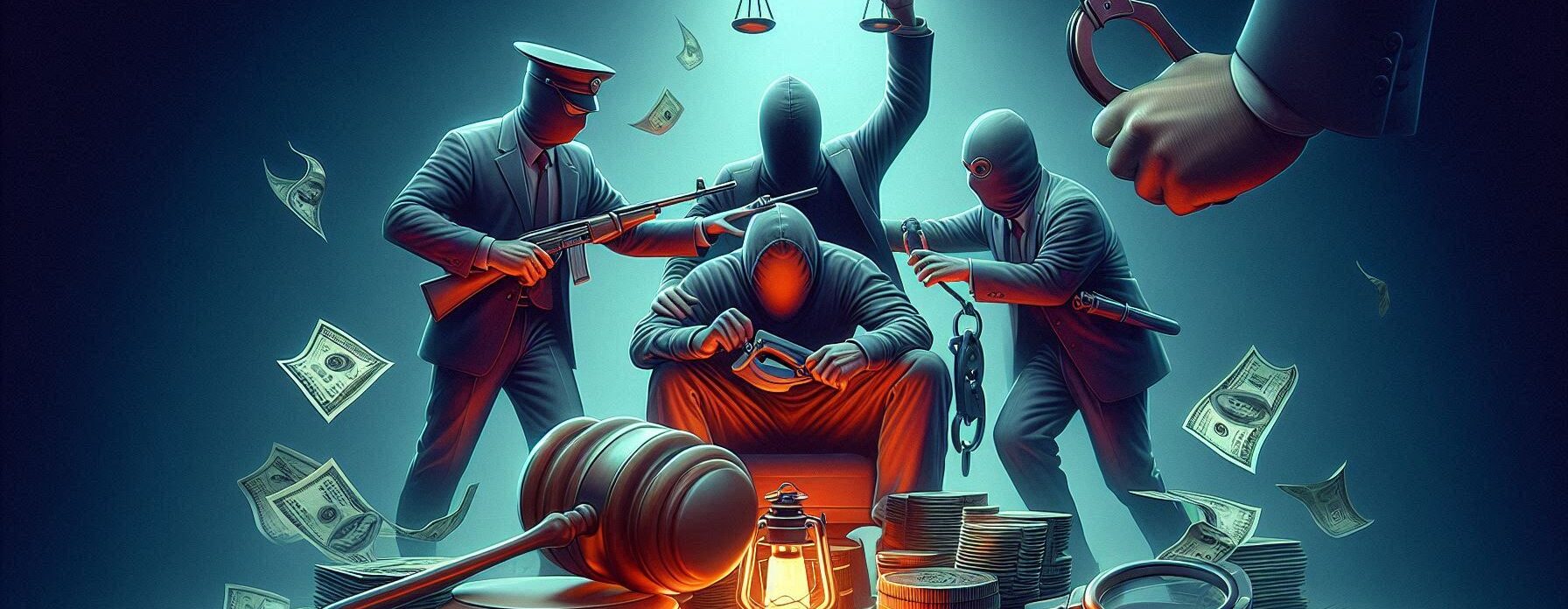Let’s be honest, if you’ve been scammed, it feels like someone just took your wallet, waved goodbye, and left you wondering, “How did I fall for that?” Don’t worry—you’re not alone.
Every year, millions of people find themselves victims of scams, from the slick “too good to be true” investment schemes to the heart-wrenching romance frauds. But here’s the good news: It’s not the end of the road. Sure, it may sting for a while, but with the right approach, you can maximize your recovery and potentially even get your hard-earned money back.
So, let’s break down the steps you can take to bounce back like a financial superhero (cape not required, but feel free to wear one).

Top Takeaways and Key Concepts
Stay Calm and Assess the Scam: Identify the scam type before acting to focus your recovery efforts effectively.
Notify Your Bank or Credit Card Immediately: Report unauthorized charges quickly to prevent further financial loss.
Report the Scam to Authorities: File reports with the FTC, local police, or consumer protection agencies.
Gather All Evidence: Collect emails, screenshots, receipts, and contact information to support recovery or legal action.
Dispute Charges and Seek Legal Help if Needed: Challenge fraudulent charges promptly and consult a lawyer for significant losses.
Summary of This Article
Please Note: This post may contain affiliate links. If you click one of them, we may receive a commission at no extra cost to you. As an Amazon Associate, I earn from qualifying purchases.
The article guides scam victims through recovery, emphasizing calm and strategic action. It recommends first identifying the scam type and immediately notifying banks or credit card companies to stop further losses. Reporting to authorities like the FTC helps track scammers and prevent future victims. Collecting comprehensive evidence strengthens potential legal or financial recovery efforts. Victims should dispute fraudulent charges, consult lawyers if necessary, and stay vigilant against future scams while sharing experiences to educate others and reduce overall vulnerability.
Don’t Panic: Breathe, Relax, and Collect Your Thoughts

Okay, I know it’s tempting to curl into a ball and binge-watch your favorite series to forget about it all. But hold on—before you go all “couch potato mode,” take a deep breath. The first step after realizing you’ve been scammed is to stay calm. Easier said than done, right? But trust me, panicking doesn’t help.
Take a few minutes to process what happened. Ask yourself, “How did I get caught up in this?” It’s important to identify the type of scam so that you can take the right steps for recovery. Were you phished? Did you get tricked into a fake investment?
By pinpointing the scam type, you’ll know where to focus your energy. The longer you stay in “denial mode,” the more likely it is that you’ll miss out on key recovery steps.
Notify Your Bank or Credit Card Company Immediately

One of the first actions you should take after realizing you’ve been scammed is to notify your bank or credit card company. I know, it feels like you’re admitting defeat—but trust me, it’s better than letting the scammer have a free ride.
Most banks and credit card companies have fraud departments that deal with these kinds of issues all the time. By acting fast, you might be able to stop further charges or even reverse unauthorized transactions.
You might be thinking, “Do I really want to deal with another set of customer service reps today?” The answer is yes. They’re trained to handle this, and the sooner you contact them, the higher the chance of mitigating damage. In some cases, you could get your money back. If not, at least you’ve minimized further financial harm, which is a step in the right direction.
Report the Scam to the Authorities
Now that you’ve taken the initial steps with your bank, it’s time to go full throttle. Reporting the scam to authorities may not feel like it’s going to change anything, but think about it this way: The more people report scams, the more it sends a message to scammers that we’re onto them.
Depending on where you live, there are different ways to report a scam. In the U.S., for example, you can report to the Federal Trade Commission (FTC), your local police, or even state-level consumer protection agencies. The goal is to build a case against the scammers and help authorities track them down. Don’t expect immediate results, but know that your report might help stop them from preying on someone else.
Keep All Evidence: It’s Time to Be a Detective
You’re going to need some hard evidence if you want to recover your funds or even take legal action later. Screenshots, emails, receipts—collect everything. Scammers aren’t always the most organized bunch (shocking, right?), so they often leave a trail behind. If you’ve been tricked into a “too good to be true” offer, gather all related documents.
This might include emails, website screenshots, phone numbers they’ve used, or even their social media profiles. Having this info will not only help you report the scam more effectively but also strengthen your case should you choose to take legal action. Plus, you might need it if you decide to pursue financial recovery options. Remember, the more details you have, the better.
Dispute the Charges with Your Bank or Credit Card Company
This is where the fun begins—well, as fun as disputing fraudulent charges can be. After notifying your bank, you’ll want to follow up and dispute the fraudulent charges. Again, it’s all about staying calm and being persistent. The quicker you do this, the higher your chance of getting your money back. It’s also essential to ask your bank about any fraud protection they may offer.
This process can take some time, but don’t give up. Some financial institutions offer reimbursement for unauthorized charges or provide fraud protection for customers who report the scam quickly enough. It’s like playing a game of financial chess, and you’re one move away from putting checkmate on those scammers.
Seek Legal Help If Necessary
If you’ve lost a significant amount of money to a scam, or if the process of disputing charges isn’t working, you may want to consult with a lawyer. Legal professionals can help you understand your rights and determine if there’s a viable path for a lawsuit or a recovery process.
For example, if the scam involved a financial institution, you may have grounds for taking them to court if they mishandled the situation.
Now, I know what you’re thinking: “I can’t afford a lawyer!” Well, the good news is that many lawyers offer free consultations, and some even work on a contingency basis—meaning they only get paid if you win your case. So, don’t be afraid to reach out for some legal advice. You’d be surprised at how much your lawyer can help.
Be Aware of Future Scams
Once bitten, twice shy. After you’ve fallen victim to a scam, it’s natural to feel more cautious moving forward. And that’s a good thing! Scammers don’t just stop—they evolve, adapt, and get sneakier. The best way to avoid future scams is to stay informed. Make a habit of keeping up with the latest scam reports, especially if you’ve been a victim of fraud before.
Be skeptical when you receive unsolicited calls, emails, or text messages. When in doubt, verify the source through official channels. Most legitimate companies aren’t going to send you unsolicited messages asking for sensitive information. Protecting yourself from future scams is all about being vigilant and proactive.
Learn From the Experience: Share Your Story
It’s tempting to keep your scam experience to yourself. After all, it’s embarrassing, right? But here’s the thing: the more people share their stories, the more we can all learn. Educating others helps prevent future victims and builds a network of awareness. Share your experience on social media, in community groups, or even with friends and family. It’s a small but mighty way to fight back.
Let’s face it—if we all shared a little more, scammers wouldn’t have such an easy time taking advantage of us. Plus, you just might help someone else avoid the same trap you fell into.
Resources
FTC – How to Recognize and Avoid Scams
https://www.consumer.ftc.gov/articles/how-recognize-and-avoid-scams
Identity Theft Resource Center
https://www.idtheftcenter.org/
Federal Bureau of Investigation – Internet Crime Complaint Center
https://www.ic3.gov/
Frequently Asked Questions
What should I do first after realizing I’ve been scammed?
Stay calm and assess the situation. Identify the type of scam, then immediately contact your bank or credit card company to stop further transactions.
Who should I report a scam to?
Report scams to the Federal Trade Commission (FTC), local law enforcement, or consumer protection agencies to help authorities track and stop scammers.
How can I gather evidence after being scammed?
Collect all relevant materials such as emails, receipts, screenshots, and contact details to strengthen your case and assist in financial or legal recovery.
Can I get my money back after a scam?
It depends on the situation. Contact your bank promptly to dispute charges—many institutions can reverse unauthorized transactions if reported quickly.
When should I consider hiring a lawyer after a scam?
If you’ve suffered a major financial loss or recovery attempts fail, consult a lawyer to explore possible legal actions or compensation options.
How can I protect myself from future scams?
Stay informed about common fraud tactics, verify sources before sharing information, and be cautious of unsolicited emails or messages requesting money.
Why is it important to share your experience after being scammed?
Sharing your story helps raise awareness, educates others on scam prevention, and empowers victims to report and recover from fraud effectively.

Kevin Collier is a legal expert passionate about simplifying complex legal concepts for everyday individuals. With a focus on providing clear, practical information, he covers a wide range of topics, including rights, responsibilities, and legal procedures. Kevin aims to empower readers with the knowledge they need to navigate the legal landscape confidently, ensuring they can make informed decisions regarding their legal matters. Through insightful articles and easy-to-understand resources, he helps demystify the law, making it accessible to all.










